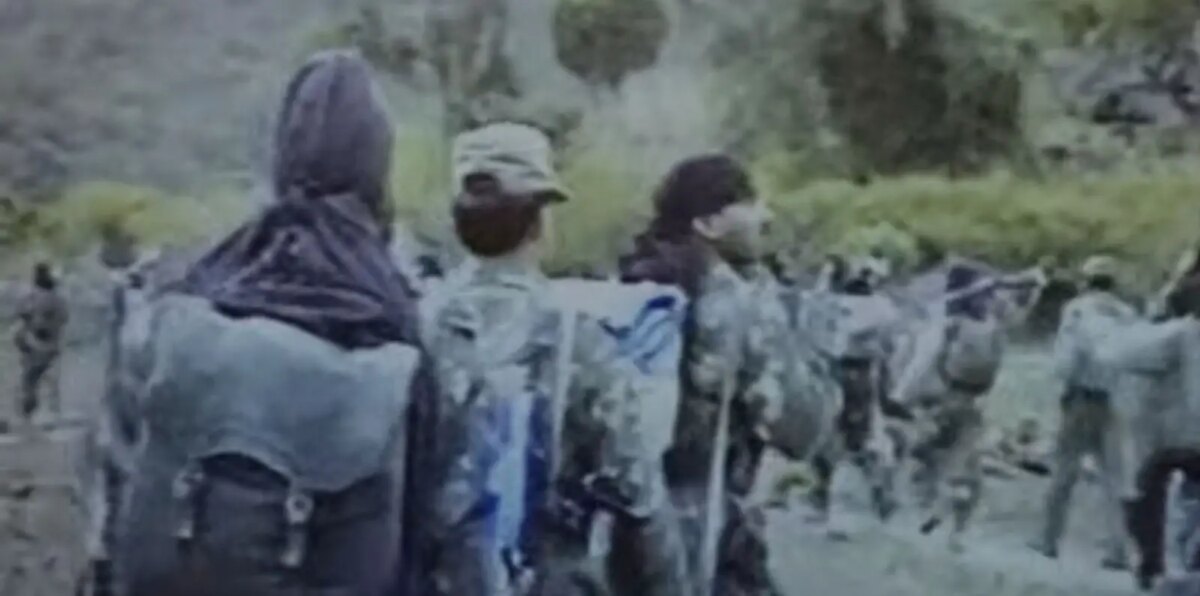
NOW ON NETFLIX! It’s always fascinating to learn about notorious villains in other countries, as it is a lens to humanity that has a bizarre connection to all of us. In the most recent Netflix docu-series, The Hunt for Veerappan, director Selvamani Selvaraj presents a very informative and deep dive into the existence of Koose Munisamy Veerappan—an Indian bandit who became a domestic terrorist for more than 35 years in the states of Tamil Nadu, Karnataka, and Kerala in southern India.
Veerappan was a sandalwood smuggler and elephant poacher living in the forests of Tamil Nadu, Karnataka, and Kerala. During his reign as King of the Forest, “a wild animal living in the form of a human,” Veerappan kidnapped the famous Indian film star and cinema icon Dr. Rajkumar along with forest officials, police officers, and others, for ransom, taking advantage of the tensions between the states of Tamil Nadu and Karnataka.
Throughout the four-part series, Selvaraj provides interviews and voice-overs from Veerappan’s wife and mother of his two daughters, Muthulakshmi or Muthu, who lived with him in the forest and was arrested and terrorized but supported his “Robinhood” existence. She said he always carried a gun, and no one could catch him. She married Veerappan at 15, and he was 39.
Investigative journalists, gang members, and others talk much about Veerappan’s appeal and unique ability to always be ahead of others in arrests and capture. As a hard-core criminal, he understood the need to keep cash flow to operate. He utilized India’s southern forests to poach elephants for ivory and illegally harvest sandalwood trees as their oils and scents were desired worldwide.
“…Veerappan’s appeal and unique ability to always be ahead of others in arrests and capture.”
Known by many for his twirling mustache, the seemingly elusive Veerappan was not lacking in photos and archival footage—plenty is spread throughout the series. In addition, modern-day forest drone footage and other filming create the setting and environment in which Veerappan and his gang operated. Although he may have been disturbed and unable to achieve happiness, Veerappan managed to attract gang members for decades until he was finally lured away with very few men at his side.
What makes this series so fascinating and perhaps provides some intel into India is how the Special Task Force created with the States of Tamil Nadu and Karnataka to capture Veerappan was unsuccessful. They had informants in the forest villages and operatives, but to no avail. However, once Veerappan’s eyesight began to fail and his force was diminishing, he was eventually contained. In his 30-plus years of surviving in the forest, 120 lives were lost, 1,000 elephants were killed, and 22 million dollars of sandalwood was pillaged and smuggled. In addition, 50 million dollars was spent trying to capture Veerappan with at least 5,000 officers.
A mythical figure or not, Veerappan could outsmart and understand nature to sustain himself and his gang. It’s incredible how one person managed to rise among so many, or was someone gifted within so many to be able to rise—I can only imagine if Veerappan was the opposite of his being, what would have been achieved?
The language is sometimes overwhelming when trying to understand all the pieces and parts of The Hunt for Veerappan. Adding to the layers of information, one cannot help but be intrigued by India, its people, and all the changes revealed throughout the series. Although Muthu is a significant figure in this story, one does not know how she operated with Veerappan except that she was a loyal wife and did not abandon him even in the most tortuous moments. One wonders how Veerappan’s daughters feel about the series as they are not present, and others who may still be alive that were close to Veerappan or lost someone to his violence.
With the many questions that arise, most likely from access and those who want to refrain from participating, The Hunt for Veerappan is a fascinating story if unknown to the viewer. Although, at times, it may be a little dragged out, it is well-produced and understood as a piece of history.














